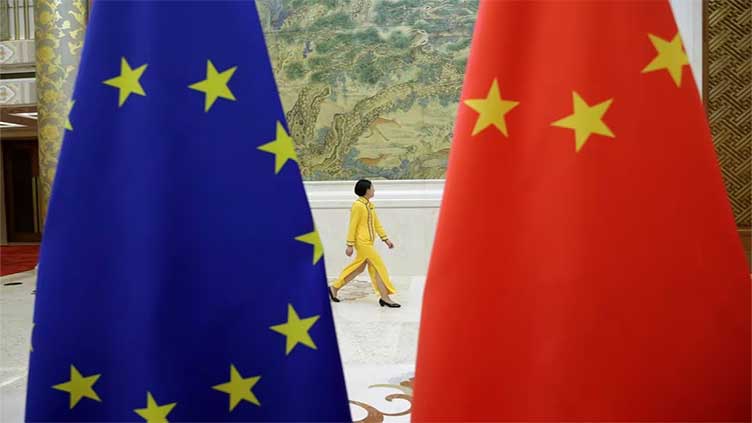China's Xi warns top EU officials not to engage in confrontation

World
Xi said China is willing to make the EU a key economic and trade partner, and to cooperate on S&T
BEIJING (Reuters) – Chinese President Xi Jinping on Thursday warned top EU officials that China and Europe should not view each other as rivals or engage in confrontation due to their different political systems, in the first in-person China-EU summit in four years.
During the meeting to discuss issues ranging from trade imbalances to Ukraine, Xi also said China is willing to make the European Union a key economic and trade partner, and to cooperate on science and technology, including artificial intelligence.
He also urged the EU in the meeting held at Beijing's Diaoyutai State Guesthouse to "eliminate all kinds of interference" in the bilateral relationship, according to state broadcaster CCTV.
European Commission President Ursula von der Leyen, European Council President Charles Michel and EU foreign policy chief Josep Borrell will also meet Chinese Premier Li Qiang on their one-day visit.
It will be their last chance to get face time with top Chinese officials before the European Parliament elections kick off next year, triggering changes in the bloc's leadership.
Both sides have sought to play down expectations ahead of the summit, with Chinese foreign minister Wang Yi warning Beijing-based diplomats from EU member states on Monday that Europe should choose "peace and stability" over a "new Cold War".
A European official told journalists in Brussels earlier this week that "there's not a single outstanding deliverable that will be crowning the summit," adding that there will not be a joint statement.
In another blow to EU-China relations, member state Italy officially informed China "in recent days" that it is leaving the Belt and Road Initiative championed by Xi, Italian government sources told Reuters Wednesday.
A string of EU Commissioners have visited Beijing since China lifted pandemic border restrictions this year, including the bloc's trade and climate chiefs, but little progress has been made on core irritants in the relationship. Most recently, Borrell's chief of staff and senior EU diplomat Enrique Mora visited in November.
The European Union wants Beijing to use its influence on Russia to stop the war, and a main focus of the trip will be urging Xi to stop Chinese private companies exporting European-made dual-use items to Russia for its war efforts. Brussels initially left these Chinese firms off its latest Russia sanctions package unveiled last month, European officials said.
The bloc is also concerned about what it considers "imbalanced" economic relations, saying its near 400 billion euro ($431.7 billion) trade deficit with China reflects restrictions on EU businesses.
China has previously pushed back against an EU anti-subsidy investigation into Chinese electric vehicles and the EU's "de-risking" policy to reduce its reliance on Chinese imports, particularly of critical raw materials.
Last month, foreign minister Wang told visiting French Foreign Minister Catherine Colonna the biggest risk is "the uncertainty brought by broad politicisation", and that "the dependency most in need of reduction is protectionism".
During Colonna's visit, China also offered visa-free entry to citizens of the EU's five largest economies in a bid to boost post-pandemic tourism and improve China's image in the West after ties deteriorated during the COVID pandemic.
EU officials say the two sides could cooperate more on action to combat climate change and to promote biodiversity.


